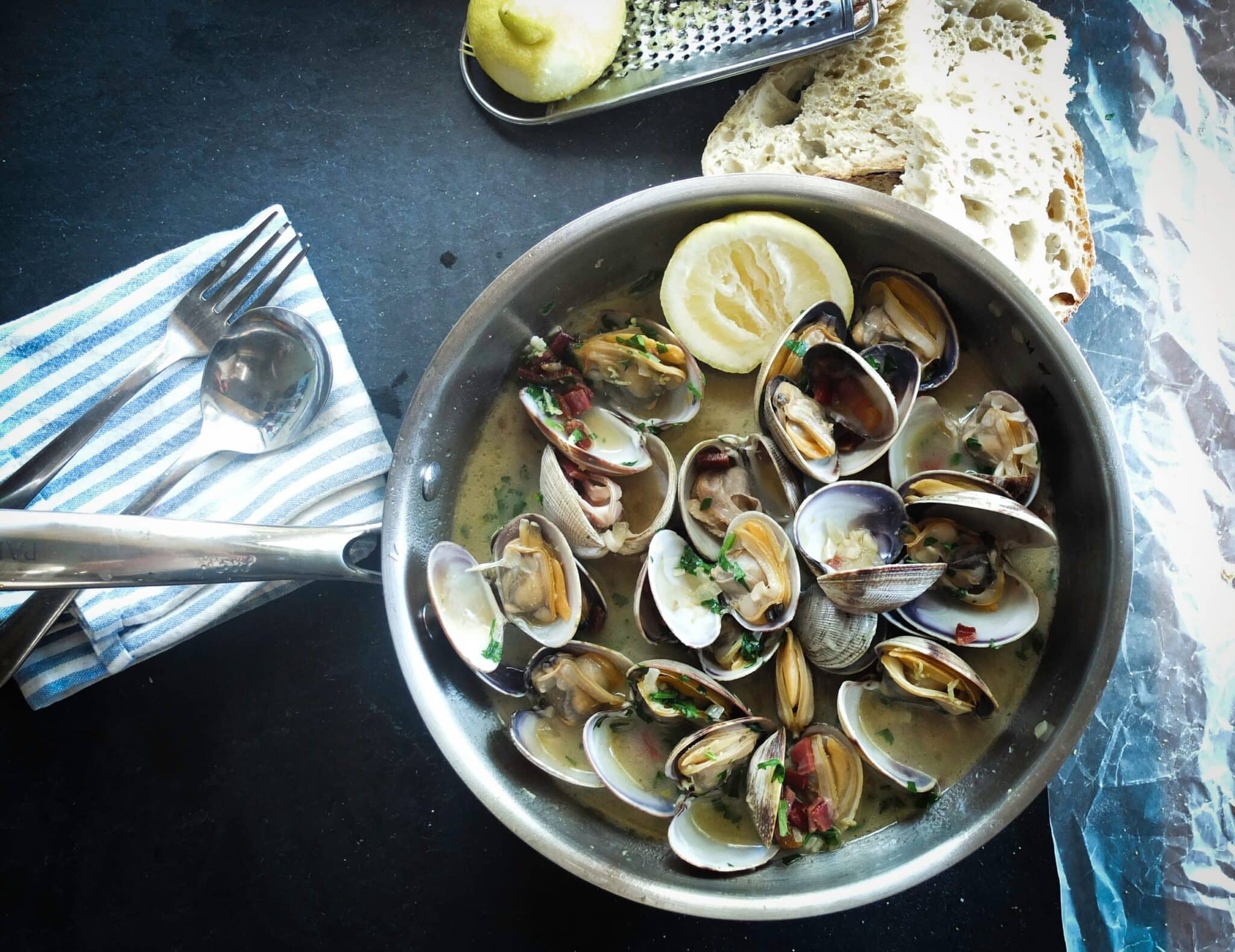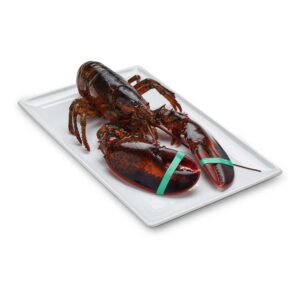
Whether you’re down east at a cottage or ‘uptah’ camp, Maine steamer clams are a traditional summertime favorite for family affairs and cookouts. Knowing how to clean steamers for such gatherings requires a few simple steps. Steamers are relatively inexpensive and easy to prepare compared to other kinds of seafood. In no time, you, your family, and your friends can enjoy the sweet and salty flavor of one of Maine’s most tasty seafood dishes.
What Is a Maine Steamer Clam?
The clams we know as steamers are abundant in Maine and harvested along the coast from Wells to Lubec. A Maine steamer is classified as a soft-shell clam. Steamers, also called longnecks, live and thrive in the clam flats—the mud, gravel, and sand areas within the intertidal region of the coast—that band along the seashore covered at high tide and uncovered at low tide, which, when you’ll find the clam diggers out mucking.
Clam flats are managed by towns cooperating with the Maine Department of Marine Resources. Soft-shell clams are an important part of the economy for Maine coastal communities. To put in perspective, Maine produces approximately 60% of the country’s soft-shell clams, with landings worth over $18.2 million in 2019. It is typically second in value as a marine resource, employing the second-highest number of fishermen after lobster fishing.
When Is Maine Steamer Clam Season?
Maine is fortunate to have such a variety of shellfish in its waters, with the soft-shell clam being one of the more popular ones. Peak harvest for steamers runs May through October, which is why many associate the season with the time of year they are in abundance. However, there is no ‘season’—the harvest is year-round.
TODAY’S LIVE MAINE LOBSTER SPECIAL
-
1-1/8 LB Live Maine Lobster$7.43
-
1-1/4 LB Live Maine Lobster$10.08
-
1-1/2 LB Live Maine Lobster$14.44
How to Clean Steamers?
Knowing how to clean steamers is an essential part of their preparation. As their name suggests, the shells of soft-shell clams have thin shells, are somewhat fragile, and should be handled with care. To clean, first, thoroughly rinse the mud and sandy grit from the shells with cold water. Once rinsed, have a large bowl or pot ready with enough cold, salted water to submerge the clams. Never use hot or warm water, as it will kill the clams. Cover and let the clams sit for 30 minutes to an hour. Doing so allows the clams to spit the sand out and purge it inside their stomachs.
How Long Should You Cook Steamer Clams?
Add an inch of cold water (or your favorite beer or a stout) to a large pot when ready to cook. If you have a steamer rack, place it at the bottom of the pot and carefully lay and stack the clams on the steamer rack. No steamer rack? Just put the clams in the pot with the water.
Cover up the pot and bring the water to a boil. Turn the heat down a little and let the clams steam away for about 10 minutes or until the steamer clamshells are wide open. Remove the pot from the heat and let the clams cool for a few minutes before handling. If any of the steamers did not open, they should be discarded.
How Many Clams Per Pound?
Soft-shell clam size varies from 2 inches in length or greater, so a good estimate is generally 12-15 clams per pound. If you order too many, you can always keep fresh live clams refrigerated for 2-3 days after the arrival of shipment. You can fry what you don’t steam—that’s what your favorite seafood restaurants do.
How Many Clams Per Person?
This is a common enough question that’s as open-ended as the answer—as many as a person can eat. However, for planning purposes, if you have a good handle on your guests’ appetites, the recommended amount of clams to serve is approximately 1/2 to 1 pound per person (appetizer) or 1 to 2 pounds per person as the main course.
Order FRESH live lobsters or fresh-picked meat online for delivery directly to your door! We also offer curbside pick-up at our South Portland location if you live locally – call for details and to place your order over the phone! Contact us— we would be happy to answer any of your questions.

